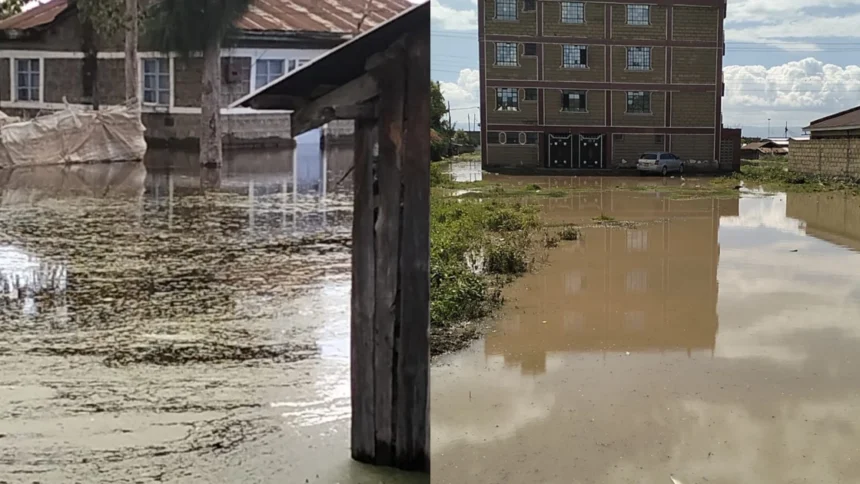According to Joyce Cece, a Disaster Management Officer in Naivasha, 4,000 people have been displaced so far.
Local leaders are now challenging the government to declare the crisis a national disaster as more families continue to face the full wrath of nature.
This came as Nakuru County government moved in to provide transport to poor and vulnerable families to relocate to neighbouring estates.
Since the year began, water levels in the lake have been rising gradually, but the situation has worsened in the last three months, flooding homes, latrines, schools, churches and even a police post.
According to former Head of the Government Delivery Service (GDS) Peter Mbae, there is a humanitarian crisis in the estate that is home to tens of flower farm workers.
Speaking after visiting the estate, he hit out at the national and county governments for keeping quiet as more families continued to sleep hungry.
“We are giving the national and county governments 48-hour notice to intervene over this crisis; failure to which we shall be forced to take to the streets,” he said.
Mbae noted the parliamentary committee on land had previously visited the estate and recommended that the legal land owners be compensated.
On her part, a local leader, Eunice Mureithi, said that some of the residents bought the land legally and had title deeds amid allegations that they were living on riparian land.
She challenged the county government to wake up from slumber and assist the affected families amid fears of a disease outbreak, as latrines had also flooded.
“Schools have closed and children are returning home to find their homes flooded, and they need urgent support to relocate to other estates,” she said.
The county Chief Officer for Disaster Management, Joyce Ncece, said that a multi-sectoral team had been formed to support the vulnerable people in relocating.
“Over 4000 families have so far been affected, and we are offering them transport to relocate to other estates, and the situation is getting worse by the day,” she said.
One of the victims, Mathew Halili, said that the families had been forgotten by the national and county governments, with many of them sleeping hungry in the flooded houses.
“We are ready to take to the streets to demand our rights as the situation is getting dire with hippos straying into our homes,” he said.
Beth Wamaitha, a flower farm worker, said that many of them could not afford to relocate to other estates as landlords had hiked rent.
“We are sleeping in the flooded houses as we don’t have money to relocate, and the people whom we voted into office have completely forgotten us,” she said.



